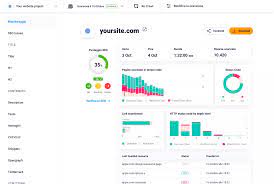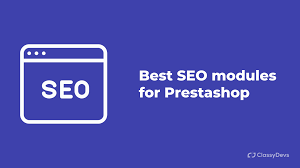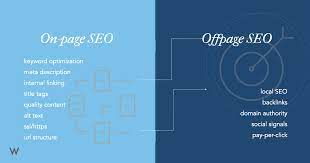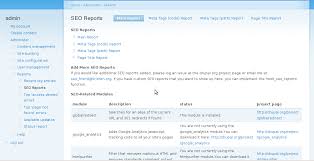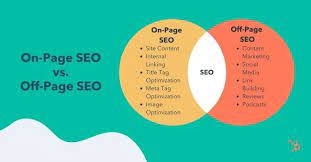The Role of SEO Spider in Website Analysis
The Role of SEO Spider in Website Analysis
In the world of Search Engine Optimization (SEO), one of the most valuable tools in a digital marketer’s arsenal is the SEO spider. But what exactly is an SEO spider, and how does it contribute to website analysis?
What is an SEO Spider?
An SEO spider, also known as a web crawler or search engine bot, is a software program that crawls through web pages on the internet to collect data for search engines. These spiders navigate through links on websites, gathering information such as URLs, meta tags, headings, and more.
How Does an SEO Spider Work?
When an SEO spider is deployed on a website, it starts by visiting the homepage and then follows internal links to other pages within the site. It analyses the content and structure of each page, identifying key elements that impact search engine visibility.
Benefits of Using an SEO Spider
Using an SEO spider offers several benefits for website analysis:
- Identifying Technical Issues: An SEO spider can uncover technical issues such as broken links, duplicate content, or missing meta tags that may affect a site’s performance in search results.
- Analysing On-Page Elements: By examining on-page elements like title tags, meta descriptions, and heading tags, an SEO spider helps marketers understand how well their content is optimized for search engines.
- Crawling Competitor Sites: Marketers can use an SEO spider to crawl competitor websites and gain insights into their strategies and keyword usage.
- Improving Site Structure: By analysing internal linking structures and site architecture, an SEO spider can help improve website navigation and user experience.
In Conclusion
An SEO spider plays a crucial role in website analysis by providing marketers with valuable insights into their site’s performance and areas for improvement. By leveraging the data collected by these spiders, digital marketers can enhance their SEO strategies and boost their online visibility.
Top 7 Benefits of Using an SEO Spider for Enhanced Website Performance
- Identifies technical issues like broken links and duplicate content
- Analyzes on-page elements for better optimization
- Crawls competitor sites for strategic insights
- Improves site structure and internal linking
- Enhances website navigation and user experience
- Provides valuable data for SEO strategy development
- Helps boost online visibility and search engine rankings
Challenges of Using SEO Spiders: 7 Key Drawbacks to Consider
- May consume significant server resources during crawling, impacting website performance.
- Can sometimes overlook dynamic content generated by JavaScript, leading to incomplete analysis.
- May encounter issues with crawling password-protected pages or sites with complex authentication systems.
- Limited ability to interpret images and multimedia content, potentially missing out on valuable SEO opportunities.
- Requires regular maintenance and updates to ensure accurate data collection and analysis.
- May struggle to navigate websites with intricate navigation structures or non-standard URL formats.
- Some SEO spiders have a learning curve and may require technical expertise to use effectively.
Identifies technical issues like broken links and duplicate content
One of the key advantages of using an SEO spider is its ability to identify technical issues such as broken links and duplicate content on a website. By crawling through the pages and structure of a site, the SEO spider can pinpoint areas that need attention, ensuring a seamless user experience and optimal performance in search engine results. Addressing these technical issues promptly not only enhances the overall health of the website but also contributes significantly to improving its visibility and ranking on search engine results pages.
Analyzes on-page elements for better optimization
One significant advantage of using an SEO spider is its ability to analyse on-page elements for better optimisation. By scrutinising key components such as title tags, meta descriptions, and heading tags, an SEO spider provides valuable insights into how well a website’s content is structured and optimised for search engines. This detailed analysis helps digital marketers fine-tune their on-page elements to improve visibility and relevance, ultimately enhancing the overall SEO performance of the website.
Crawls competitor sites for strategic insights
One significant advantage of using an SEO spider is its ability to crawl competitor sites for strategic insights. By analysing the content, structure, and keywords used by competitors, marketers can gain valuable information about their strategies and positioning in the market. This competitive analysis allows businesses to identify opportunities, understand industry trends, and adjust their own SEO tactics to stay ahead of the competition. The insights obtained from crawling competitor sites with an SEO spider can inform strategic decision-making and help businesses refine their digital marketing efforts for greater success in the online landscape.
Improves site structure and internal linking
An important advantage of using an SEO spider is its ability to enhance site structure and internal linking. By analysing the way web pages are interconnected within a website, the SEO spider can identify opportunities to improve navigation and user experience. It helps digital marketers ensure that their content is easily accessible to both users and search engine crawlers, ultimately leading to better indexing and ranking on search engine results pages. This proactive approach to site structure and internal linking not only boosts SEO performance but also contributes to a more organised and user-friendly website overall.
Enhances website navigation and user experience
One significant benefit of using an SEO spider is that it enhances website navigation and user experience. By analysing internal linking structures and site architecture, an SEO spider helps identify any issues that may hinder smooth navigation for visitors. Improving the website’s structure based on the insights provided by the SEO spider can lead to a more user-friendly experience, making it easier for users to find relevant information and navigate seamlessly through the site. This ultimately contributes to higher user engagement and satisfaction, which are key factors in improving overall website performance and search engine rankings.
Provides valuable data for SEO strategy development
An essential advantage of using an SEO spider is its ability to provide valuable data for the development of SEO strategies. By crawling through web pages and analysing key elements such as meta tags, headings, and internal linking structures, an SEO spider offers crucial insights into a website’s performance and areas for improvement. This data empowers digital marketers to make informed decisions when crafting and refining their SEO strategies, ultimately enhancing their online visibility and search engine rankings.
Helps boost online visibility and search engine rankings
Utilising an SEO spider can significantly enhance online visibility and improve search engine rankings for websites. By thoroughly analysing a site’s content, structure, and technical aspects, an SEO spider identifies opportunities for optimisation that can positively impact a website’s visibility in search results. This proactive approach to SEO not only helps in climbing search engine rankings but also ensures that the website is more easily discoverable by users searching for relevant information or services online. Ultimately, the use of an SEO spider is instrumental in boosting a website’s online presence and driving organic traffic through improved search engine visibility.
One notable drawback of using an SEO spider is that it has the potential to consume significant server resources during crawling, which can have a detrimental impact on website performance. As the spider navigates through web pages and collects data, it puts a strain on the server, potentially slowing down website loading times and affecting user experience. This increased server load may also lead to higher hosting costs or even cause temporary downtime if not managed efficiently. It is essential for website owners to carefully monitor and control the crawling activities of SEO spiders to prevent any negative impact on their site’s performance.
Can sometimes overlook dynamic content generated by JavaScript, leading to incomplete analysis.
One drawback of using SEO spiders is that they can sometimes overlook dynamic content generated by JavaScript, resulting in incomplete analysis. As search engines increasingly consider user experience and interactive elements on websites, the inability of SEO spiders to effectively crawl and index dynamic content can hinder the accuracy of website analysis. Marketers need to be aware of this limitation and supplement their SEO strategies with additional tools or manual checks to ensure a comprehensive understanding of their website’s performance in search engine results.
May encounter issues with crawling password-protected pages or sites with complex authentication systems.
One notable disadvantage of SEO spiders is their limitation when it comes to crawling password-protected pages or websites with intricate authentication systems. Due to the restricted access to such content, SEO spiders may encounter difficulties in analysing and collecting data from these areas of a website. This limitation can hinder the comprehensive analysis of a site’s full content and structure, potentially leading to incomplete insights for search engine optimisation strategies. Website owners and digital marketers need to be aware of this con and consider alternative methods for analysing secured web pages to ensure a thorough SEO evaluation.
Limited ability to interpret images and multimedia content, potentially missing out on valuable SEO opportunities.
One drawback of SEO spiders is their limited ability to interpret images and multimedia content, which can result in missing out on valuable SEO opportunities. Since these spiders primarily focus on text-based content, they may overlook the relevance and impact of visual elements on a website’s search engine ranking. Images and multimedia play a significant role in enhancing user experience and engagement, as well as conveying important information to visitors. Without proper interpretation of such content by SEO spiders, websites risk losing out on potential traffic and visibility that could have been gained through optimising visual assets for search engines.
Requires regular maintenance and updates to ensure accurate data collection and analysis.
One notable drawback of using an SEO spider is the necessity for regular maintenance and updates to guarantee precise data collection and analysis. As websites evolve and content changes, the SEO spider must be consistently monitored and adjusted to ensure it accurately captures relevant information. Failure to keep the spider updated may result in incomplete or outdated data, compromising the effectiveness of website analysis and potentially leading to inaccurate insights for SEO strategies.
When it comes to the limitations of SEO spiders, one significant drawback is their potential struggle to navigate websites with intricate navigation structures or non-standard URL formats. These spiders rely on following links to crawl through web pages, and complex website layouts or unconventional URL patterns can pose challenges for them. In such cases, SEO spiders may not be able to effectively explore all areas of a website, leading to incomplete data collection and potentially overlooking important content. Marketers need to be aware of this limitation and may need to supplement SEO spider analysis with manual checks to ensure comprehensive website evaluation.
Some SEO spiders have a learning curve and may require technical expertise to use effectively.
Some SEO spiders present a significant drawback in that they come with a learning curve and may demand technical expertise to utilise effectively. Navigating these tools can be challenging for those without a strong technical background, potentially limiting their accessibility and utility for individuals or businesses looking to conduct website analysis. The requirement for specialised knowledge and skills to maximise the benefits of SEO spiders can act as a barrier for some users, hindering their ability to leverage these tools optimally for improving search engine optimisation strategies.

